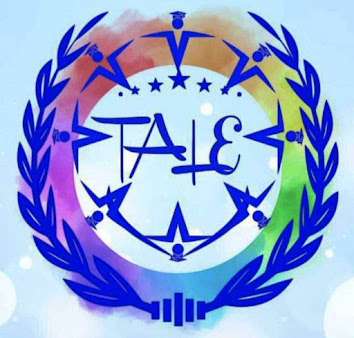Hard
Times as fairy tale for the Industrial Age
One of the most great and
important period in English literature and history is the Victorian era. In
this period there were a lot of social problem such as bad living condition
social classes and poverty which reflect the theme of the novel Hard Times by
Charles Dickens. The Victorian era was the great age of English novel, thickly
plotted and crowded with characters; it was the ideal form to describe
contemporary life. Dickens’ novel is full of literary devices and techniques to
describe his social characteristics which add a specific touch to the novel.
Charles Dickens is an
extraordinary popular writer on his day. He gave a real vision and description
to the Victorian era and its features and characteristics. He produced
diligently and creatively what the public want to consume from literature he
worked hard to show the basic changes in many aspect of life and ethics as a
result of the Industrial Revolution which had an immense on his work as in Hard
Times.
Hard Times is a rich novel
which bears variety of Victorian society themes, which aims to depict and
tackle the reality of social building at that era. Hard Times shows the inadequacy of an approach
to life that emphasizes only the human intellect at the cost of the imagination
and the heart.
When one thinks of a
“fairy tale” story they think of the themes and characterization of any common
“fairy tale” such as; good vs. Evil, hero/heroine vs. Evil villain, good
triumphs over the evil and love conquers all. These are some of the obvious
themes of any “fairy tale” story. Many stories contain a “fairy tale” base or
components. The novel “Hard Times” by Charles Dickens has been termed a “fairy
tale” for the industrial revolution.
‘Hard Times’ resembles a
fairy tale by expressing theme ‘love conquers all’, a classic fairy tale theme.
In the beginning we are introduced to Tom and Louisa Grangrid, brother and
sister, we soon find out that Louisa has a great love for her brother Tom. A
love that was so strong to the extent that she would give her life in an
instant for her brother.
By writing the novel Hard Times
for the ordinary people, Dickens discusses in way abasement, indignity,
maltreatment and negative effects of the Industrial Revolution, generally in
Europe and England in particular. He recognizes that his society needs to read
books, stories, and essays which include imagination and fancy and not only
relying on facts. Theatre and circus are the two places which supply people
with imaginative and fantastic pictures. Dickens thinks that life is not just
about facts but there is more in life.
Society, in Hard Times, is
classified into two different distinctions: the owners of factories and the
undervalued workers in the Victorian Age. The novel is about three parts; the
first part is concerned with sowing. The second is about reaping and the last
one is about gathering or garnering. These names are refereeing to the Bible.
"What you sow you reap and then you harvest. Hard Times is about what you
harvest when using only facts. Facts are a symbol of something that is
unchangeable and fancy is something that is changeable in people's imagination
and mind. Dickens maintains in his novel that fact and fancy must work
together, so the individual can succeed in life, and become a healthy human
being".
The events of Hard Times take
their place in a fictional city (Coketown). This city is jail for the ordinary
and poor people who were treated as animals. The meaning of the city refers to
coal that was used to power factories during the Industrial Revolution.
Coketown is a city of pollution. It can be described as follows: "it was a
town of red brick or of brick that would have been red if the smoke and ashes
had allowed it; but as matters stood it was a town of unnatural red and black
like the painted face of a savage".
Workers do not get their true
wages. They are obliged to work for long hours to cover their basic needs in
order to live. This is the fact that Dickens always displays in his writings.
He concentrates on one thing that all human beings are equal in their rights
and responsibilities. He describes this fact in Hard Times:" the measured
motion of their shadows on the walls, was the substitute Coketown had to show
for the shadows of rustling woods; while, for summer hum of insects, it could
offer, all the year around, from the dawn of Monday to the night of Saturday,
the whirr of shafts and wheels".
Dickens used the fairy
tale to promote his social views. To Dickens, a liberal humanist, the fairy
tale had a high cultural value because it helped readers maintain hope and
humanity in a mechanised age. Secondly, my approach illuminates Dickens's role in
the cultural dispute of the early nineteenth century over the value of the fairy
tale for children, when writers battled for access to children's minds in the
hopes of perpetuating the belief systems. In "Frauds on the Fairies"
and Hard Times, Dickens not only defends fancy as society necessary but
satirizes the Christian and rational discourses of its attackers.












replica Sunglasses UK, combining elegant style and cutting-edge technology, a variety of styles of replica lacoste Sunglasses, the pointer walks between your exclusive taste style.
ReplyDeleteI cannot wait to dig deep and kickoff utilizing resources that I received from you. Your exuberance is refreshing. secondary containment
ReplyDeleteI have read your blog and I gathered some needful information from your blog. Keep update your blog. Waiting for your next update. auditing services in sharjah
ReplyDelete